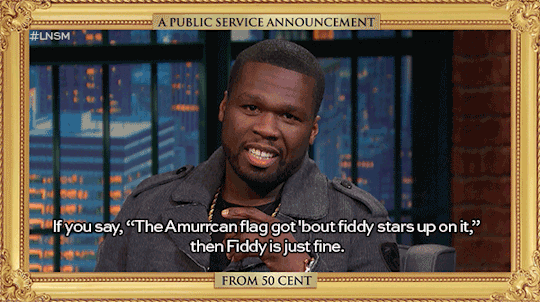Don't wanna be here? Send us removal request.
Text
2?
Now I have two followers... Am I doing something right by not doing anything at all?
1 note
·
View note
Text
So...
So, I have a grand total of one follower. Is this what it feels like to be famous?
2 notes
·
View notes
Photo
"Bad Handwriting". If that's bad, then I don't even wanna know what level I'm at.

#funny lol lmao lmfao tagsforlikes hilarious laugh laughing tweegram fun friends photooftheday friend wacky crazy silly witty instahappy joke#lol#funny#funny pics
1K notes
·
View notes
Conversation
As a new person on Tumblr
Day one Me: Hi everyone! So this is Tumblr! I'm sure I'll have lots of fun here and have lots of followers!
Day Two Me: He...Hello? Maybe my followers bar is broken
Collective Me: PLEASE. LOVE. ME.
6 notes
·
View notes
Note
His last quote, the one about how we are all different people all throughout our life. It might be too long, but that speech will always bring a tear to my eye.
I am planning to get a tattoo that will reference to my favorite doctor, the 11th! What are some of your favorite 11th Doctor moments/quotes?
One of our favorite quotes from the Eleventh Doctor era is the “the way I see it, every life is a pile of good things and bad things” quote but that’s only one opinion. We’re want to open this up to all of you guise and see what you think.

So, what’s your favorite Eleventh Doctor moment or quote that you think would look cool as a tattoo?
746 notes
·
View notes
Photo
Is that Frodo?

Daniel Radcliff and Elijah Wood are the same person!
☆ funny tumblr
☆ funny reblogs
692 notes
·
View notes
Photo
Time might be wibbly wobbly, but I know what's not...

Decided to join in on this Valentines Day card thing.
27K notes
·
View notes
Photo
Don't forget - it has to be YOUR vision of it. You pretty much have to direct it.

2K notes
·
View notes
Photo
"Why are you gutting the watermelon? And what are you doing with that gun?" "Shut up Mom, you're not the one with the Tumblr.

342 notes
·
View notes
Photo
By bs'd, I mean briefly smiled. Has anyone ever actually had a laughing fit? HAR HAR HAR HAR HAR. Whales! MA! COME LOOK AT THIS! HARDEE HAR HAR










Bill Nye strikes again
4K notes
·
View notes
Photo
Very punny. I bs'd.










Bill Nye strikes again
4K notes
·
View notes
Photo
I briefly smiled. I bs'd? Huh.





If you need more examples, 50 Cent is happy to provide them.
570K notes
·
View notes
Text
Day one
Day one: No supernatural GIFs yet. I am fascinated by the spectrum of sightings reported recently. I will stay here and begin to gain the trust of the natives.
1 note
·
View note
Text
Don't you hate it when people tag things wrong to get attention?
I mean, come on guys
0 notes
Quote
One does not simply walk into Narnia
Spock, Master Jedi from Gallifrey
0 notes
Photo

A Brain System that Appears To Compensate for Autism, OCD, and Dyslexia
Individuals with five neurodevelopmental disorders — autism spectrum disorder, obsessive-compulsive disorder, Tourette syndrome, dyslexia, and specific language impairment (SLI) — appear to compensate for dysfunction by relying on a single powerful and nimble system in the brain known as declarative memory.
This hypothesis being proposed by a Georgetown University Medical Center neuroscientist is based on decades of research. It is published online and will be in the April issue of Neuroscience and Biobehavioral Reviews.
The proposed compensation allows individuals with autism to learn scripts for navigating social situations; helps people with obsessive-compulsive disorder or Tourette syndrome to control tics and compulsions; and provides strategies to overcome reading and language difficulties in those diagnosed with dyslexia, autism, or SLI, a developmental disorder of language.
“There are multiple learning and memory systems in the brain, but declarative memory is the superstar,” says Michael Ullman, PhD, professor of neuroscience at Georgetown and director of the Brain and Language Laboratory. He explains that declarative memory can learn explicitly (consciously) as well as implicitly (non-consciously).
“It is extremely flexible, in that it can learn just about anything. Therefore it can learn all kinds of compensatory strategies, and can even take over for impaired systems,” says Ullman.
“Nevertheless, in most circumstances, declarative memory won’t do as good a job as these systems normally do, which is an important reason why individuals with the disorders generally still have noticeable problems despite the compensation,” he adds.
Knowing that individuals with these disorders can rely on declarative memory leads to insights on how to improve diagnosis and treatment of these conditions. It could improve treatment in two ways, Ullman says. First, designing treatments that rely on declarative memory, or that improve learning in this system, could enhance compensation. Conversely, treatments that are designed to avoid compensation by declarative memory may strengthen the dysfunctional systems.
Ullman says compensation by declarative memory may also help explain an observation that has long puzzled scientists — the fact that boys are diagnosed with these disorders more frequently than girls. “Studies suggest that girls and women are better than boys and men, on average, in their use of declarative memory. Therefore females are likely to compensate more successfully than males, even to the point of compensating themselves out of diagnosis more often than males,” Ullman says.
Declarative memory may also compensate for dysfunctions in other disorders, he adds, including attention deficit hyperactivity disorder (ADHD) and even adult-onset disorders such as aphasia or Parkinson’s disease.
The hypothesis may thus have powerful clinical and other implications for a wide variety of disorders, Ullman says.
397 notes
·
View notes
